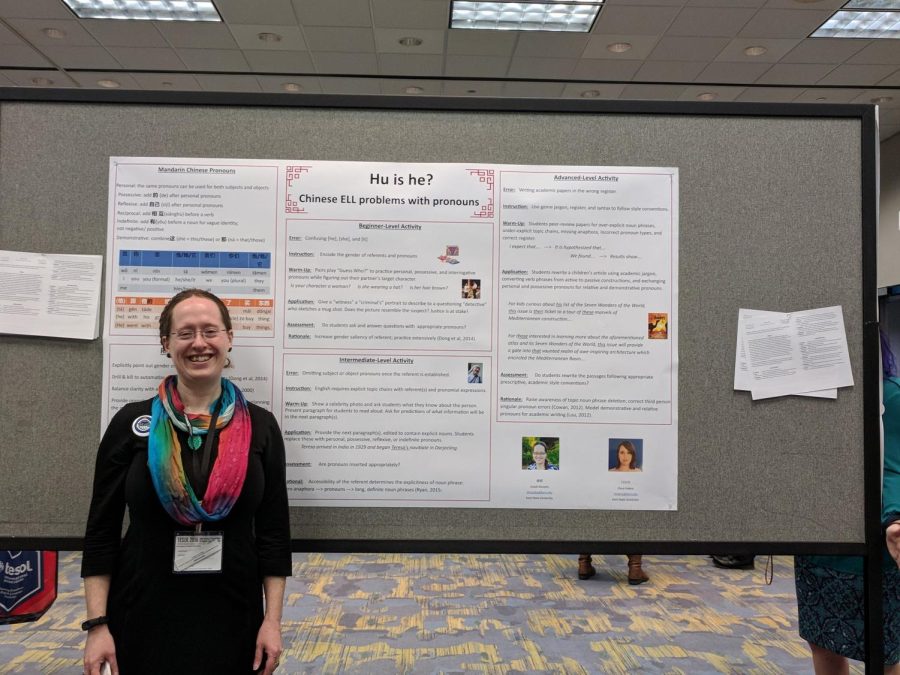Art of teaching English as a second language
April 5, 2018
Though the College of Education, Health and Human Services hosts the majority of aspiring teachers on Kent’s campus, the department of English provides a teaching program unlike that taught in White Hall.
Teaching English as a Second Language (TESL) is a bachelor’s and master’s program that prepares students to teach English to those who do not primarily speak the language.
TESL students learn to teach just like other education majors; however, language barriers and cultural differences add stress to the classroom setting, and TESL teachers must learn to overcome it.
“It takes a lot of patience,” said Josiah Murphy, the president of the Graduate Organization for Teaching English as a Second Language. “My primary teaching philosophies include patience and hospitality. You really have to have a ‘try-and-try again’ mentality to communicate.”
Masters student Iryna Zhuchenko agrees that constantly pushing her students helps her reflect on herself as a teacher and person.
Zhuchenko, like other TESL majors, work with the English as a Second Language (ESL) Center on campus. Most work with foreign exchange students and other students who do not primarily speak English through tutoring and teaching classes.
Ryan Miller, a professor for TESL students, and Zhuchenko both agree ESL benefits not only the students, but the teachers as well. They find that not only does it develop their teaching skills, it promotes personal growth.
“I started, like many students in the program, teaching English as a second language because we want to give all students the tools to successfully learn to the best of their ability, and not allow something like language stop them,” Miller said.
He continued to say working in ESL or being in a TESL program helps create a deeper understanding and empathy for different cultures.
TESL students learn to teach students from or in foreign settings in the following skills: reading, writing, grammar, speaking and listening.
The degree is used to teach in English-speaking countries, like teaching foreign exchange students English. The degree can also be used to teach English as a foreign language. This is where the teachers go to countries where English is not predominantly spoken.
Murphy explained more graduates go into TESL and English for Specific Purposes rather than TESL. Many master’s students also go into linguistic research as well.
She also said that the TESL program is very different from education majors because their worries about the future are different.
Most education majors and college students are worried about finding a job in the future, but a TESL student’s major concern is about leaving home for foreign countries.
“The need to learn English will always be there,” Murphy said. “The most difficult part is uprooting, leaving your friends and family, and not seeing them for months, maybe years.”
Caroline Henneman is a humanities reporter. Contact her at [email protected].












